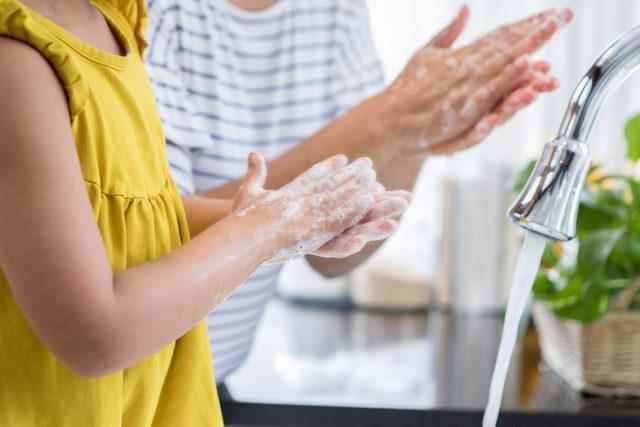Pediatrician Dr. Gizem Samlı said, “The increase in air temperature allows microbes and toxins to multiply easily. In addition, lately, we have started to see diarrhea due to viruses that we call adenovirus and norovirus very often. Thanks to hygiene, we can stay away from these viruses.”
HYGIENE SHOULD BE VERY CAREFUL
Mentioning that diarrhea often lasts for a few days and disappears without the need for any treatment, Dr. Samlı said, “Acute diarrhea occurs due to viral or bacterial infection. Chronic diarrhea, on the other hand, is diarrhea that lasts much longer, such as 3-4 weeks, and is caused by a serious intestinal disease.” Stating that the most common cause of contagious diarrhea is viruses, bacteria and parasites, Dr. Samlı said, “Disease-causing microbes are usually spoiled, contaminated, bacteria or bacteria on them. The parasite enters the human body through contaminated food and water. That’s why we have to give importance to hygiene,” he said.
HANDS MUST BE WASHED FOR AT LEAST 20 SECONDS
Dr. Emphasizing that hands must be washed with soap frequently to prevent viral diarrhea, Samlı said, “As adults, we must wash our hands before and after preparing the food to be given to our children. Hands should be washed with soap for at least 20 seconds after touching uncooked meat, using the toilet, coughing, sneezing and blowing the nose, after changing diapers.

OUTSIDE FOR WATER FROM A BOTTLE, NOT FROM A CUP
Saying that bacteria increase with the warming of the weather, Dr. Samlı later said: “Bacteria and viruses are transmitted by consuming meat products, especially milk, cream, mayonnaise and especially chicken meat, which cannot be stored properly with hot weather. It can be transmitted to other children by drinking unhygienic water and as a result of a child getting sick in schools. Avoid raw or undercooked meat and dairy products and prefer bottled water, soda, fruit juice and fermented beverages served in their original containers.

ATTENTION TO WATER LOSS, SHOULD APPLY TO THE DOCTOR URGENTLY
Dr. Noting that the thirst that can be experienced with diarrhea and vomiting can develop very quickly in children, Samlı said, “The signs of dehydration in infants and young children are that the diaper does not get wet for more than three hours, crying without tears, dry mouth or tongue, lethargy, unresponsiveness to the environment or irritability, stomach ache. It can be seen as stinging or pitting in the eyes and cheeks, or collapse of the fontanel. In such a case, it is necessary to consult a doctor immediately,” he said.
“SIDE WATER AND FRUIT JUICE AND SOUP”
Underlining that adequate and clean water intake is essential as long as diarrhea and vomiting continue, Dr. Samlı said, “It will be good to increase the consumption of clean drinking water, fruit juice or broth. However, the necessary salts and electrolytes are not found enough in clean drinking water. For this reason, we can use powders that we can easily obtain from pharmacies, that contain electrolytes and that are mixed with drinking water. If drinking liquids upsets the child’s stomach or causes vomiting, intravenous fluid therapy may be required.
“WE NEED TO EDUCATE OUR CHILDREN”
Stating that children transmit diseases to each other very often, Dr. Samlı said, “Children have a habit of bringing their hands to their mouths. For this reason, we see it more frequently, especially in children who go to kindergarten or kindergarten. In addition, there is a virus epidemic that we call adenovirus and norovirus recently. The most important thing to prevent these is hand cleaning. We need to warn and educate our children on this issue,” he said.
